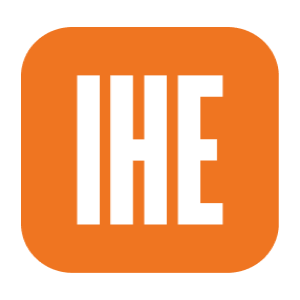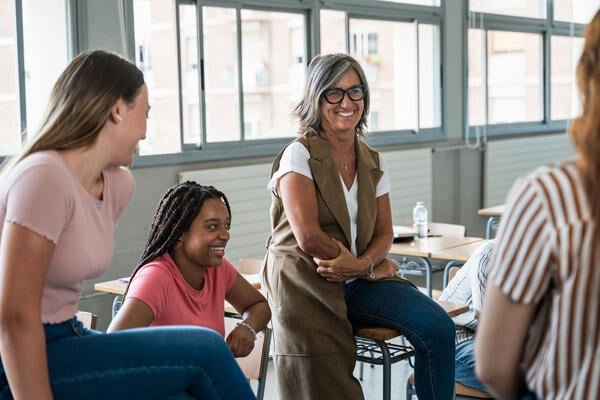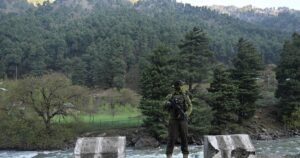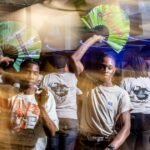Ideas for Relationship-Building as Resistance (opinion)
As Subini Annamma and David Stovall write in their February piece, “Standing Up to the New Segregationists,” “When universities stay silent or indicate their willingness to comply with executive orders that seek to dehumanize anyone who is not white, male and cisgender, they are sending a message.”
We would argue that all of us in the system of higher education, on individual and collective levels, are sending messages with our action or nonaction at this moment. The past few months have been a period of chaos marked by rapid-fire executive orders, threats to college and university funding, and presidential edicts that undermine higher education’s fundamental values. The whiplash of ongoing executive actions and their judicial reversals is overwhelming, and the ground keeps shaking under our feet.
Consistent with a traumatic experience (when events occur faster than our ability to cope), some of us may be experiencing a kind of trauma response, an instinctive response to a perceived threat. Most of us have heard about fight-or-flight modes, but it seems to be fawn and freeze responses that are playing out at many institutions across the country. The fawning response in higher education manifested in the form of anticipatory compliance in the face of threats to colleges’ federal funding. Diversity, equity and inclusion offices were jettisoned within a blink of an eye.
We also are seeing some of our colleagues struggling with the task of revising position descriptions and scrubbing institutional websites, all while trying to support their colleagues who are most at risk. And there are many of us who don’t know what to do; feeling unsettled and fearful, we are just trying to make it through each day.
Despite what is happening around us, we have to continue to attend to our work—to do all of the things that keep the institution running, to be in relationship with our colleagues and to be in classroom spaces with our students. We may be asking ourselves how we can show up in a meaningful way when our world is on fire, or how we can move forward when we feel so powerless.
But if we do nothing, what does that say about our commitment to the essential promises of education—to the free exchange of ideas and academic freedom, to a belief in science and innovation, and, most especially, to our commitment to access, diversity and equity, which we know enhances the learning experience for everyone? Are these not the things that drew us to education in the first place?
This moment is calling us back to our essential purposes—the deep relationships with students, the excitement of new ideas bubbling up and the sense of freedom that comes from the creation of knowledge in the context of community. It is time for us to get to work, to reclaim our spaces, to take a stand. We cannot wait for someone else to save us: We must save ourselves. And we do so through deep relationships within the context of community. As we have learned from bell hooks, Audre Lorde, Paulo Freire and Kimberlé Crenshaw, relationships will be our resistance.
Relationships are not just the touchy-feely outcome of safe learning spaces: They are the foundation. And what better action can we take to protect ourselves and our communities from harm than by strengthening our foundation for this moment and what lies ahead? Fortunately for us all, whether you are an educator or institutional leader who has always prioritized relationships or one who is looking to strengthen your community as the ground beneath higher education rumbles and shakes, relatively small efforts (which is perhaps all we can muster) can reap far-reaching benefits.
There are a myriad of brilliant ways to foster belonging, structure brave dialogue spaces and listen deeply to others, indeed, many more than we could possibly incorporate here. What we offer are some practical ways to grow and maintain an ethic of care and relational accountability. We hope this inspires simple ways for you to gather with others or maybe gives you permission to explore your own ideas for slowing down to the speed of relationship-building. What we share here are not new ideas, but they may have been forgotten.
The offerings below span many cultures and have been practiced in one form or another by communities over time in response to oppressive regimes across the globe. We just have to recall the wisdom of our ancestors and employ some of their communal resistance strategies. They made sense of the world, grieved, resisted and found joy. So, too, must we.
Notice and Name It
“I believe we have a responsibility to create ways of understanding political and historical realities that will create possibilities for change. I think that this is our role, to develop ways of working through which, little by little, the oppressed can unveil their reality.” —Paulo Freire
We can’t pretend that what is happening in the world doesn’t impact us, our students or their learning. Perceived and real threats of harm impede learning and development. In noticing and naming what is happening, we give ourselves and our students a means of coming to terms with it. When we name the fears and acknowledge uncertainty, we release a bit of the tension and welcome participants in all their experiences. This could involve a facilitator-led nod to the political climate, musings from the group of what they are holding in their minds, a meditative moment or a two-minute journaling activity in which students reflect on what they need to let go of in order to be present for the work ahead in class. These techniques can be just as helpful in meetings and other convenings of staff and faculty.
In location-diverse, online environments, where you can expect a wide range of pressing matters, feel free to use or adapt this Acknowledgment Statement developed by emareena danielles and Deborah Kronenberg for a PODlive series on facilitation.
Play: A Shortcut to Joy and Laughter
Play and laughter are part of our ancestral languages, of our somatic ways of being. They exist across every culture to fuel us, nourish us and allow us to be more fully human. When was the last time you used your body or voice or language in a new way? How can you make space for a moment of play at the start of any group work or class, faculty development workshop, or community meeting? As easy as making a sound and movement, drawing with your nondominant hand, appropriating a childhood game toward a collective goal, or engaging in gibberish conversations, the small, silly risk will lead to a room (virtual or otherwise) of laughter.
The collective release of emotion through play creates a community poised to dig into the work with joy and openness and gives us a reference point of when we took a risk, went with the flow and practiced resilience. For a great resource, Moving Beyond Icebreakers by Stanley Pollack with Mary Fusoni not only has a plethora of games to try but teaches facilitators how to use the games as metaphors for the work ahead. You may also want to check out Professors at Play for a more in-depth discourse.
Tell Stories
“We tell stories because we are human. But we are also made more human because we tell stories. When we do this, we tap into an ancient power that makes us, and the world, more of who we are: a single race looking for reasons, searching for purpose, seeking to find ourselves.” —Amanda Gorman
Storytelling is a tradition that transcends cultures and communities and helps us make meaning of experiences. Nothing creates a connection between two people quite like sharing real stories from their own experiences and making meaning of the ideas together. A brief pair storytelling activity or a full Story Circle process holistically engages us all, pulling more of ourselves into the room. Stories activate our deep listening capacity, build authentic connections and remind us of why we are here in this moment, doing this work.
Gather Together
“I have seen, over and over, the connection between tuning into what brings aliveness into our systems and being able to access personal, relational and communal power.” —adrienne maree brown, Pleasure Activism
When we are exhausted and overwhelmed, it is easy to isolate. But as the news headlines continue to keep us in a state of constant upset and tension, we can choose to pull away from our individual screens as a means of resistance, as a conscious choice to be our full selves and band together with others. Whether through synchronized movie nights, local stitching circles or open mikes, coming together builds our relationships and positively impacts our communities’ efficacy. At College Unbound, students, faculty and staff kick off our in-person classes by breaking bread together to settle into our beautiful community before the academics begin. Gather however and whenever you can and know you are generating power by doing so.
Self-Care
As facilitators of relationships, of learning, of change-makers, we also have to care for ourselves. Here, we are not talking about indulging oneself with the luxury of a spa day. We are talking about the radical practice of taking care, slowing down and saying no to productivity as an indicator of self-worth. We can also care for ourselves through connection with peers both within and outside the field of education. We can prioritize our own joy, however that comes, and know that our rest is resistance, too (check out Tricia Hersey’s work).
Resistance is needed now and mercifully comes in many forms. It might show up in marches and protests, but it can also be found in discovering what is within our locus of control and reclaiming our own agency. Our facilitation of spaces that build a sense of agency for students, staff and ourselves in solidarity can grow power.
The antidote to oppression can be found in these glimpses of liberation, in spaces where we are unafraid and can imagine a more just world. In this context, we also build up our reserves for the journey toward the future we seek to manifest.
If we can take a moment away from the chatter and from the bombardment of headlines meant to cause chaos, we can tap into our collective histories and remember: We know how to do this. Let’s recognize all the work we are already doing, the embedded relationship-building that has sustained us until now. And let’s continue to do the work that brought us to these educational spaces. The relational work we foster is the bedrock for the world we need to create together.
You may be interested

Counter terror police assessing Kneecap concert video | UK News
new admin - Apr 23, 2025Counter terror police are assessing a video reported to be from a concert by Irish rappers Kneecap.A social media clip…

Sharge’s transparent Shargeek 170 power bank is now only $99
new admin - Apr 23, 2025I find something weirdly captivating about tech products that come with transparent cases that let you see the works inside.…
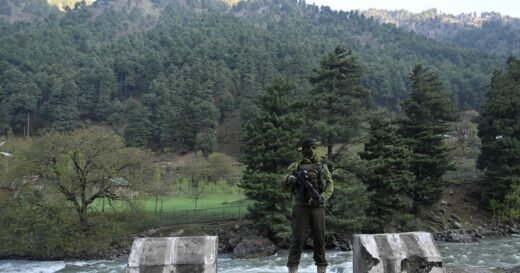
After Kashmir attack leaves 26 dead, India revokes key treaty, tells Pakistani nationals to leave
new admin - Apr 23, 2025New Delhi – A day after 26 people were killed and many others injured in an attack by suspected Pakistan-based…




